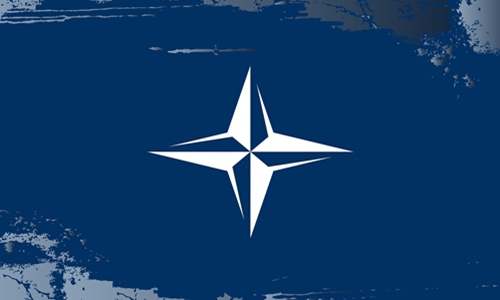HOME >> OPINION
After seven decades of muscle flexing, cracks within NATO paint a foggy picture
Source:Global Times Published: 2019/12/8 20:18:40

Photo: VCG
At the age of 70, NATO is beset with troubles.First, it has lost its original aim. The organization was established in response to the Warsaw Pact and the Eastern Bloc, serving the needs of the Cold War. But since the Soviet Union disintegrated, NATO's purpose and mission have become ambiguous. Confusion has thus appeared among member countries.
Second, NATO members have disputes over burden sharing, a problem that has garnered international attention. The problem started with the US demand to increase the amount of contribution by member countries. Washington, under President Donald Trump's oversight, has been demanding more resources from its allies to maintain this military alliance, so that the US can hold its leadership on one hand and bear fewer responsibilities on the other. The demand has led to unease among Germany, France and many other NATO members.
Third, due to historical, cultural and economic ties with Russia, some European nations are not willing to follow the US in imposing sanctions on Russia. For example, French President Emmanuel Macron proposed that Europe needs to "reconsider our position with Russia." But Washington still adopts a hostile attitude toward Moscow with a mind-set of great power competition, which has led to divergence of interests between Europe and the US.
Fourth, NATO is transitioning from an exclusive military alliance to one that is acquiring political influence. But in terms of political values, internal divisions have emerged, such as the divergence between multilateralism of Europe and unilateralism of the US, ideological cracks between Western democracies and the Muslim-majority Turkey, which sits at the crossroads of Asia and Europe. For instance, Turkey purchased the S-400 missile-defense systems from Russia and launched operations in Syria. Should other NATO members take a stance against such moves or support Ankara as it is a member of the alliance?
These cracks within NATO have been exposed during the London summit that ended Wednesday. And Macron's earlier statement saying NATO was "brain dead" further raised temperatures.
But in the short term, strong dependency on NATO can still be observed in both the US and Europe. NATO members still agree on developing the alliance and both the US and Europe have been making efforts.
For example, after his meeting with Trump on December 3, NATO Secretary-General Jens Stoltenberg said that Canada and European allies will add $400 billion to the defense budgets by 2024. Hence, despite disputes, European countries are still determined to keep Washington within this security framework.
Nonetheless, if US-Europe fissures cannot be healed and the alliance's future strategic direction looks hazy, NATO will remain in a dilemma with constant squabbles and strains.
Some observers believe that NATO is a Cold War legacy which can no longer fit in the current era. Such viewpoint makes sense to a certain extent. In the post-Cold War era, all countries are highly interdependent and interconnected with structures of globalization. NATO's security concept with a Cold War mind-set, therefore, is outdated.
Currently, the concept of security aligns with a country's own defenses while factoring in others' security concerns. NATO, however, has often interfered in others' affairs, and has not respected Russia's post-Cold War international status and security concerns.
Apart from internal issues, the so-called threat posed by China was also a major topic at the summit. The subject, broached by the US, showed that NATO is becoming a US tool to maintain US hegemony and contain China.
Regardless of US intention, many European countries rely heavily on China in terms of multilateral affairs, climate change, economic and trade issues, and are reluctant to follow the US in trying to contain China.
Yet China needs to keep a watchful eye on NATO's expansion outside the European security frame. If the alliance steps up its activities in the Asia-Pacific region, Beijing needs to be wary.
The article was compiled by Global Times reporter Yan Yunming based on an interview with Dong Yifan, assistant research fellow with the Institute of European Studies, China Institutes of Contemporary International Relations. yanyunming@globaltimes.com.cn
Posted in: VIEWPOINT